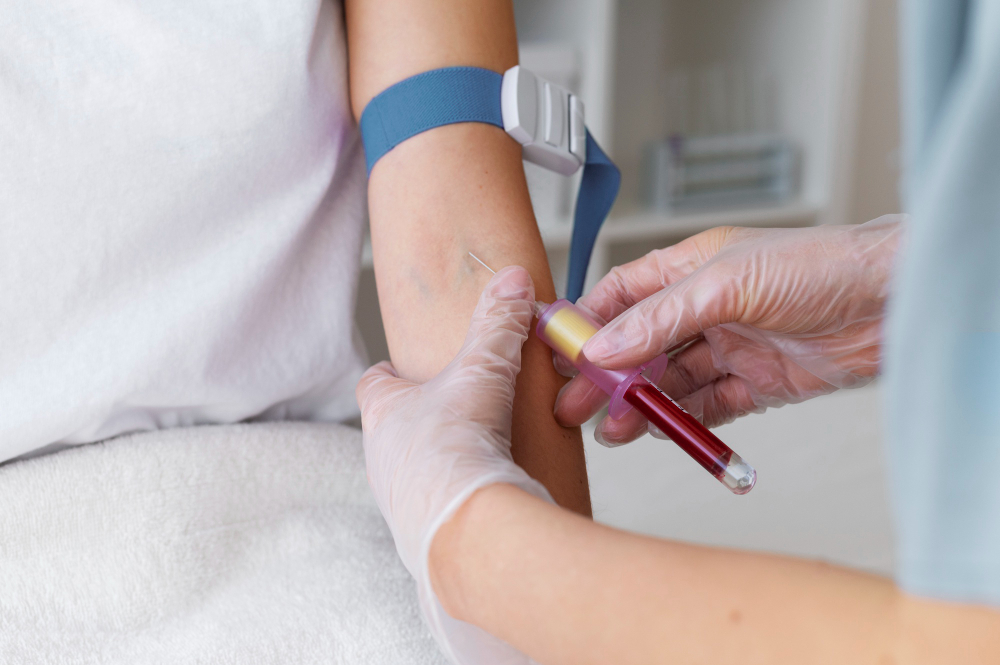Blood Test

At Laboratory Services, we understand the importance of blood tests in assessing your overall health and detecting signs of infection or disease. These tests provide valuable insights into various aspects of your well-being and allow healthcare providers to tailor treatment plans accordingly. Here’s what you need to know about blood tests and their significance:
Why Blood Tests Are Important: Blood tests are crucial for several reasons:
- Detecting Infections: They help identify the presence of pathogens such as bacteria, viruses, or parasites in your bloodstream.
- Monitoring Health Conditions: Blood tests can track the progression of chronic diseases like diabetes, hypertension, or kidney disease.
- Assessing Organ Function: These tests evaluate the functioning of vital organs such as the liver, kidneys, and thyroid.
- Screening for Diseases: They aid in the early detection of conditions like anemia, cancer, or autoimmune disorders.
- Evaluating Overall Health: Blood tests provide a comprehensive overview of your health status, guiding preventive measures and lifestyle modifications.
Common Blood Tests: Some of the most frequently performed blood tests include:
- Complete Blood Count (CBC): This assesses the overall health of your blood, including red and white blood cell counts, hemoglobin levels, and platelet count.
- Basic Metabolic Panel (BMP): It measures glucose, electrolyte, and kidney function levels, providing insights into your body’s metabolism and hydration status.
- Liver Function Tests (LFTs): These evaluate liver enzymes and proteins, helping detect liver diseases or damage.
- Lipid Profile: This measures cholesterol and triglyceride levels, assessing your risk of heart disease.
- Thyroid Function Tests: These evaluate thyroid hormone levels, crucial for metabolism regulation and overall well-being.
Preparing for Your Blood Test: To ensure accurate results, it’s essential to follow these guidelines:
- Fasting: Some tests require fasting for accurate glucose or lipid measurements. Your healthcare provider will advise you if fasting is necessary.
- Medication: Inform your healthcare provider about any medications or supplements you’re taking, as they might interfere with certain blood tests.
- Hydration: Drink plenty of water unless instructed otherwise, as dehydration can affect blood test results.
Interpreting Results: After your blood test, your healthcare provider will explain the results and discuss any abnormalities or concerns. It’s essential to follow up as advised and discuss any lifestyle changes or treatment options recommended based on your test results.
At Laboratory Services, we’re committed to providing accurate and timely blood test results to support your health and well-being. If you have any questions or concerns about your blood tests, don’t hesitate to reach out to your healthcare provider. Your health is our priority.

